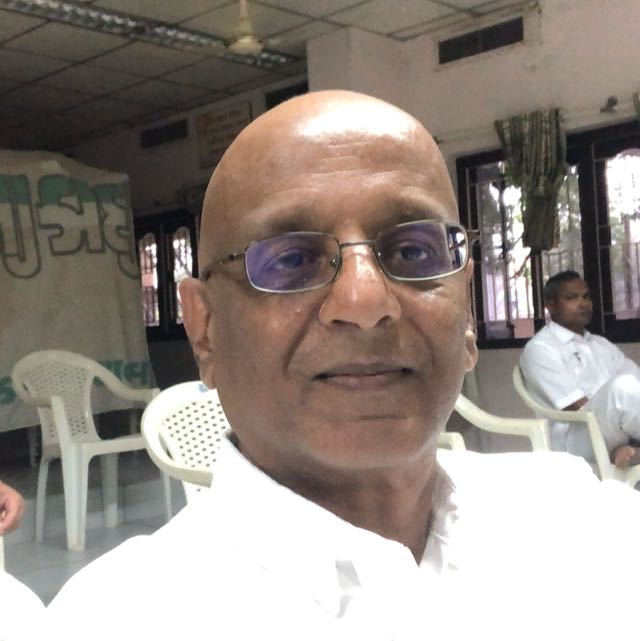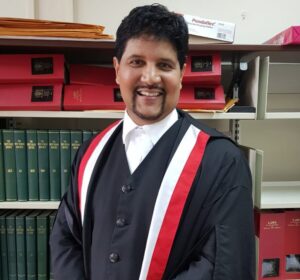
INDEPENDENCE is a historical milestone in the life of a nation.
Even without external pomp, we mark our independence with pride, acknowledging the struggles and sacrifices that led to emancipation.
A day of prayer gives us time to reflect. Just as a nation seeks sovereignty, individuals, too, must deal with questions of identity and freedom. Personal independence is tied to selfhood, and at the deepest level, to the age-old inquiry into the existence and nature of the soul. Interestingly, modern scientific research has also ventured into this domain, seeking to understand what lies beyond the brain and physical body.
Collective Identity
When a nation wins independence, it reclaims the right to define its collective identity through its culture, traditions, values, and vision for the future. Colonialism imposes external norms and governance structures that overshadow a people’s own sense of who they are. The celebration of independence represents freedom to determine our own goals as a country however, these goals are themselves a collective product of our individual values. No longer subjects of a foreign power, citizens redefine themselves as participants in a shared project of self-governance and self-expression.
This process mirrors the journey of the individual. Just as nations must distinguish their identity from external domination, individuals, too must conquer social expectations, cultural pressures, and material desires to discover their true being.
The Search for Self-Identity
Self-identity has always been a central question in philosophy, psychology, and spirituality. Am I defined by nationality and social norms or is there something deeper that constitutes the real self? In the modern age, identity is often fragmented. Technology, consumerism, and globalisation expose individuals to a multitude of influences, sometimes leaving them uncertain of their authentic self.
Psychology suggests that identity forms through a combination of experiences, memory, and social interaction. However, this does not fully address the inner sense of continuity and presence—the feeling of “I am” that persists regardless of external change. Here, the conversation naturally extends toward the soul, a concept deeply embedded in traditions worldwide.
Scientific Perspectives
In recent decades, scientists from various disciplines have begun investigating phenomena that point toward the existence of a non-material dimension of human life. Three areas of research stand out:
- Near-Death Experiences (NDEs):
Thousands of cases have been documented in which individuals clinically pronounced dead later report vivid experiences such as seeing light, meeting deceased relatives, or observing their own bodies from above. While skeptics attribute these to brain chemistry, some researchers argue that the clarity and consistency of these reports suggest the survival of consciousness beyond the body. - Consciousness Studies:
Neuroscience has made great strides in mapping brain activity, yet the “hard problem of consciousness”—how subjective experience arises from neural activity—remains unresolved. Some scientists, such as those in the field of quantum consciousness, propose that awareness may not be reducible to the brain but is instead a fundamental property of the universe. If so, consciousness may align with what spiritual traditions call the soul. - Reincarnation Research:
Pioneering studies by psychiatrists like Dr Ian Stevenson have investigated cases of young children recalling past lives with astonishing detail, sometimes verified by historical records. Such research has challenged the strictly materialistic views of human identity.
These scientific explorations suggest that the essence of who we are may transcend biology and social labels.
True Independence
Nations may achieve sovereignty, and individuals may carve out identities within society, but without awareness of the soul, both remain incomplete. True freedom is not merely the ability to make choices in the outer world but the realization of inner sovereignty. Consider the addict who lives in the country with the most social freedoms but is in the bondage of a personal vice. He has nothing to celebrate on Independence Day.
Metaphysical writings emphasise that the soul is eternal, pure, and innately peaceful. Forgetting this leads to compulsions in the form of anger, greed, attachment, and ego. However, identifying as a soul and remembering our inner virtues grants liberation. In this sense, the independence of the soul is a state of self-control, free from the domination of negative influences.
Conclusion
Independence, whether of a nation or an individual, is ultimately about reclaiming the right to define oneself. Personal independence is reclaiming our original character beyond societal conditioning. When individuals realise their true identity as souls, they achieve a higher form of independence that cannot be colonised by people, circumstance, or even death.
Vijai Sadal is a student of the Brahma Kumaris Raja Yoga Meditation Centre. He can be reached at vijai@pepesmkt.com
![]()











